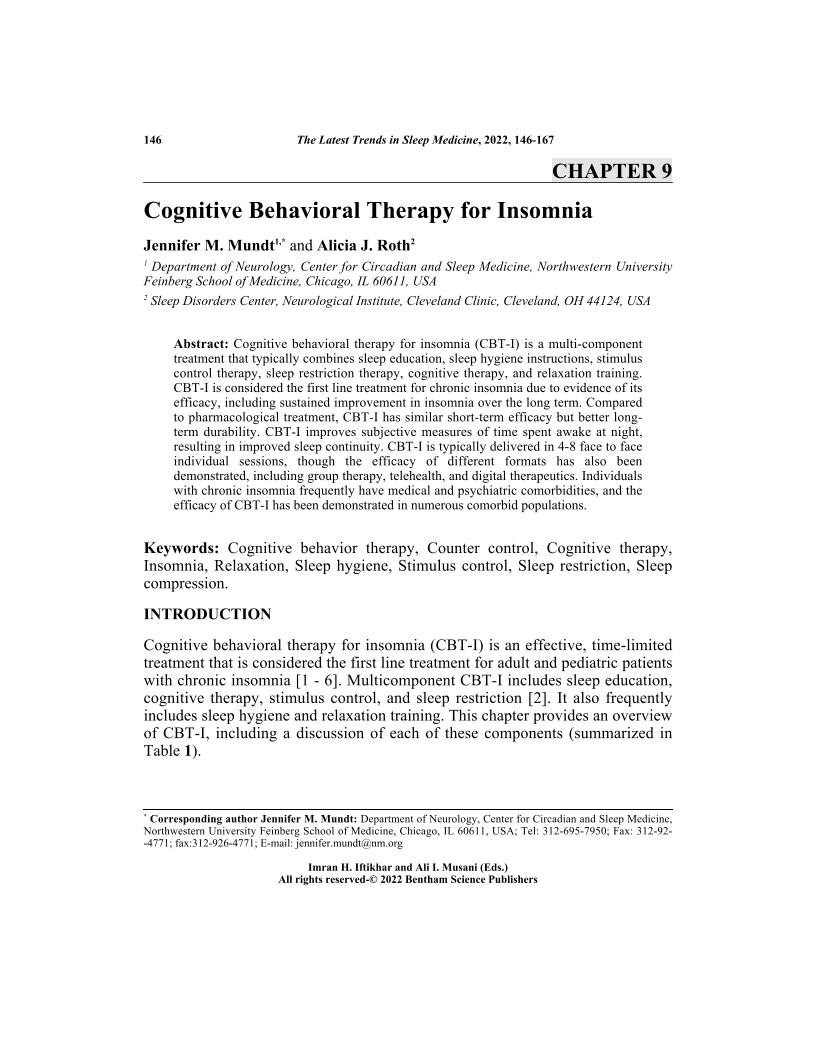Cognitive Behavioral Therapy for Insomnia

- Authors: Jennifer M. Mundt1, Alicia J. Roth2
-
View Affiliations Hide Affiliations1 Department of Neurology, Center for Circadian and Sleep Medicine, Northwestern University Feinberg School of Medicine, Chicago, IL 60611, USA 2 Sleep Disorders Center, Neurological Institute, Cleveland Clinic, Cleveland, OH 44124, USA
- Source: The Latest Trends in Sleep Medicine , pp 146-167
- Publication Date: March 2022
- Language: English
Cognitive Behavioral Therapy for Insomnia, Page 1 of 1
< Previous page | Next page > /docserver/preview/fulltext/9789815051032/chap9-1.gif
Cognitive behavioral therapy for insomnia (CBT-I) is a multi-component treatment that typically combines sleep education, sleep hygiene instructions, stimulus control therapy, sleep restriction therapy, cognitive therapy, and relaxation training. CBT-I is considered the first line treatment for chronic insomnia due to evidence of its efficacy, including sustained improvement in insomnia over the long term. Compared to pharmacological treatment, CBT-I has similar short-term efficacy but better long term durability. CBT-I improves subjective measures of time spent awake at night, resulting in improved sleep continuity. CBT-I is typically delivered in 4-8 face to face individual sessions, though the efficacy of different formats has also been demonstrated, including group therapy, telehealth, and digital therapeutics. Individuals with chronic insomnia frequently have medical and psychiatric comorbidities, and the efficacy of CBT-I has been demonstrated in numerous comorbid populations.
-
From This Site
/content/books/9789815051032.chap9dcterms_subject,pub_keyword-contentType:Journal -contentType:Figure -contentType:Table -contentType:SupplementaryData105

